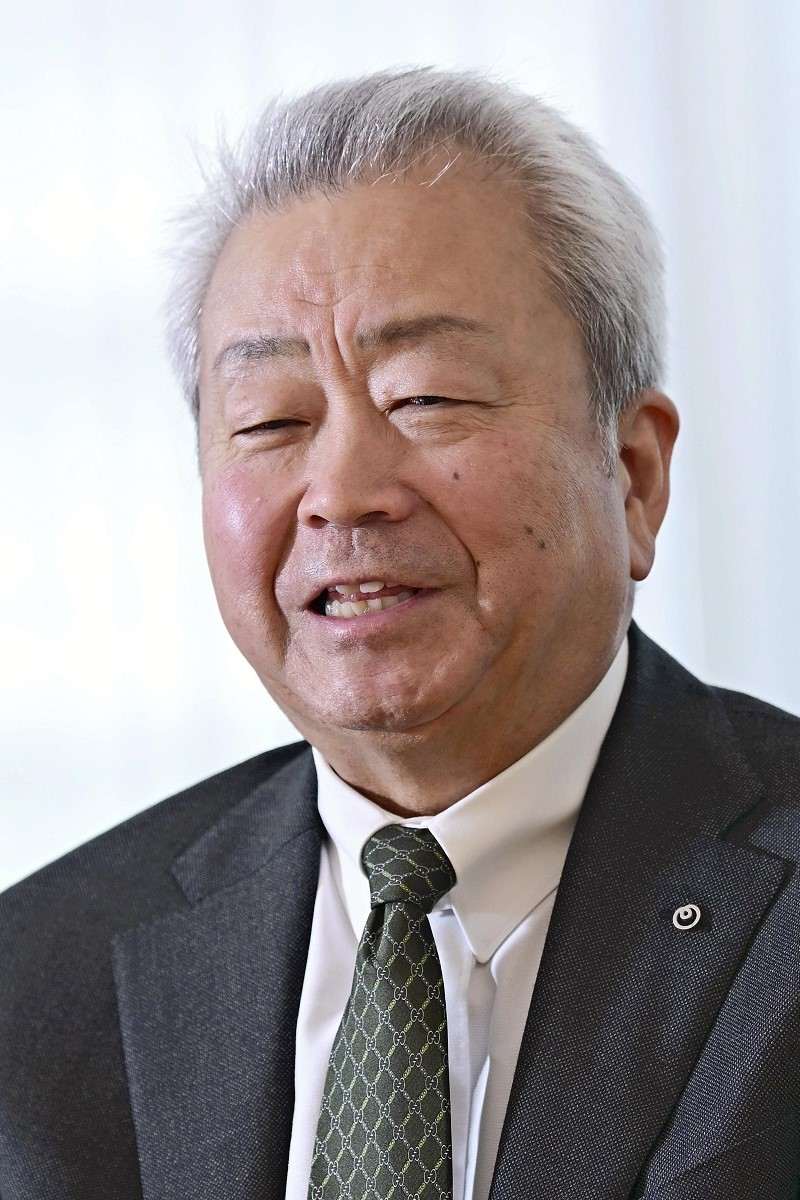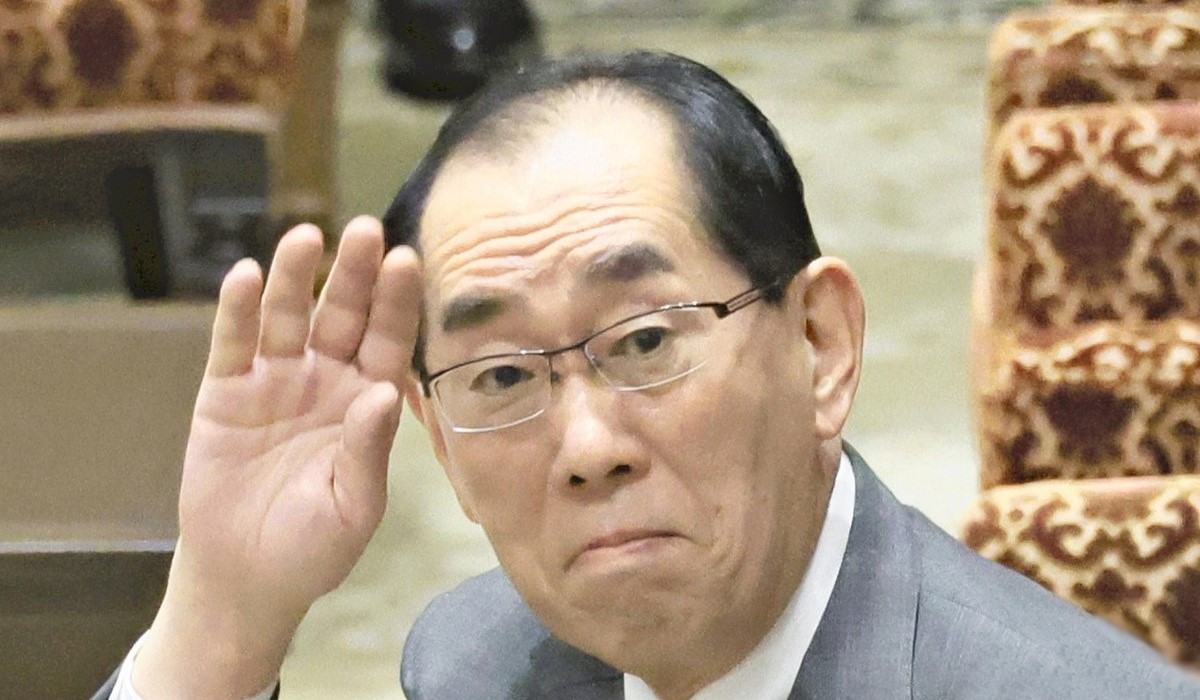Joint Proposal / NTT Chairman: Public Forums Could Gain from AI If Supported; Authenticity Tech to Need Constant Updates

NTT Corp.’s Chairman Jun Sawada speaks during an interview with The Yomiuri Shimbun.
7:55 JST, April 9, 2024
Jun Sawada, chairman of Nippon Telegraph and Telephone Corp., has spoken to The Yomiuri Shimbun about the significance of the two companies’ “Joint Proposal on Shaping Generative AI,” and the outlook and challenges presented therein.
◇◇◇
The Yomiuri Shimbun: NTT has been developing generative AI as the largest communications company in Japan. Why did it decide to undertake a joint proposal that outlines the need for regulations for and a response to generative AI?
Jun Sawada: NTT has been developing its business using new technologies such as large-scale language model named “tsuzumi.” However, such technology is not neutral. We should make good use of the technology, and control bad effects to the best of our ability. The key issue is to prepare for institutional measures as we introduce such technology into society.
There are advantages to using generative AI if used properly, but it also comes with risks. As the development of generative AI could have a major impact on society, including on spaces for discussion, it is important to discuss related issues with journalism organizations and create positive effects. I hope journalism organizations will be lighthouses illuminating spaces for discussion. There is a great significance in supporting these lighthouses with technology.
Yomiuri: The proposal refers to the need for tiered restrictions depending on the field. It also refers to a need for strong restrictions around elections and security.
Sawada: This is a realistic response as it is impossible to control generative AI uniformly. For areas that could be negatively impacted, strong regulations are needed, while there is also a need to promote the use of generative AI in areas related to strengthening industrial competitiveness. Strict regulations are needed for areas that might undermine spaces for discussion. It is important to balance regulations and use and development.
Yomiuri: The joint proposal also encourages adapting protections for intellectual property rights, especially copyrights, to the times. What are your thoughts on this?
Sawada: Due to the development and expanded use of generative AI, problems have emerged that are not covered by conventional laws. With copyrights in mind, we must make clear to what extent the use of generative AI is acceptable, both in terms of technology and legal systems. Such legal systems should also be reviewed based on reality so that they can be applied globally.
Yomiuri: Chairman Sawada, you have been creating a philosophy for the AI age through your activities at Kyoto Institute of Philosophy.
Sawada: As generative AI evolves, the risk grows of not being able to distinguish between humanity and artificial things. In such a situation, discussions about the self, such as Descartes’ “I think therefore I am,” might disappear. We need a new philosophy. We believe that NTT should address the issue as a company in possession of technology, linking philosophy [to this technology].
Yomiuri: The joint proposal also refers to the importance of creating an environment in which multiple generative AIs of various kinds keep each other in check.
Sawada: If a particular AI has too much power, it could undermine spaces for discussion. It is important to secure diversity, creating a balanced situation through diverse AI. A model is needed where we can cooperate and check and study each other.
It is hoped that not only multipurpose AIs but also AIs for specialist areas such as law and medicine will exist in parallel. Then, even if you try to create a hallucination, in which the AI answers as if something were a fact when it has never happened, there will be an adjustment. This also creates trust for users. We need those who will lead discussions to build such a world. I hope journalism organizations and newspaper companies will play such role.
Yomiuri: The proposal also mentions examining a system to eliminate and absorb users’ risks for generative AI through businesses that are the B in the center of the B2B2X business model, which underpins technical support for company services.
Sawada: Newspaper companies can be the B in the center. So far, there has been a B2C model between businesses and users. However, many Bs have appeared behind recently. When you include the distorted information that has been distributed in society, you cannot allow the direct distribution of information from Bs that have appeared behind. There is value in providing trustworthy information to newspaper subscribers, without taking in distorted information.
The era when we said “It’s OK to have all this information on the internet” has ended. Due to the spread of generative AI, we can no longer judge which information is true. From the viewpoint of subscribers, a trustworthy B party is needed in the center of the B2B2X model.
Yomiuri: How effective do you think is the Originator Profile technology, which identifies the senders of information online so that users can confirm the reliability of information?
Sawada: The value provided by OP is very important, and I think it will be essential. It will have to be continuously developed, thinking about how it is implemented, so as to prevent it from being manipulated.
This interview was conducted by Yomiuri Shimbun Staff Writer Michitaka Kaiya.

Jun Sawada
Jun Sawada has been NTT Corp. chairman since June 2022.
He previously served as president of NTT and vice president of NTT Communications Corp. He is currently chairman of the Japan-U.S. Business Council, vice chair of Keidanren (Japan Business Federation), and cochair of the Kyoto Institute of Philosophy. He joined what is now NTT in 1978 after graduating from Kyoto University.
Top Articles in Society
-

Producer Behind Pop Group XG Arrested for Cocaine Possession
-

Man Infected with Measles Reportedly Dined at Restaurant in Tokyo Station
-

Man Infected with Measles May Have Come in Contact with Many People in Tokyo, Went to Store, Restaurant Around When Symptoms Emerged
-

Woman with Measles Visited Hospital in Tokyo Multiple Times Before Being Diagnosed with Disease
-

Australian Woman Dies After Mishap on Ski Lift in Nagano Prefecture
JN ACCESS RANKING
-

Producer Behind Pop Group XG Arrested for Cocaine Possession
-

Japan PM Takaichi’s Cabinet Resigns en Masse
-

Man Infected with Measles Reportedly Dined at Restaurant in Tokyo Station
-

Israeli Ambassador to Japan Speaks about Japan’s Role in the Reconstruction of Gaza
-

Videos Plagiarized, Reposted with False Subtitles Claiming ‘Ryukyu Belongs to China’; Anti-China False Information Also Posted in Japan






















